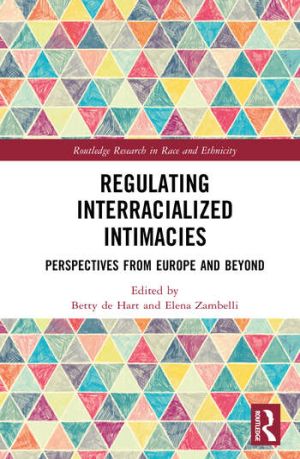
This book explores the role of the law in the social construction of ‘race’ and ‘mixture’ within and beyond the borders of Europe. It focuses on ‘interracialized’ intimacies, that is, the intimate relations of subjects ascribed and/or perceived to belong to different ‘races.’ The role of the state in defining boundaries between ‘us’ and ‘them’ becomes particularly clear in their regulation. Moving across different times, places and political formations – including the US slavery regime, European colonial empires and metropolises – the book delves deep into how the governments of white-supremacist and white-majority societies have consistently attempted to prevent, discourage or obstruct intimate relationships crossing the colour line. This occurred directly, through prohibitions and anti-miscegenation laws, or indirectly, through citizenship laws, marriage licenses, social care, prostitution laws, housing policies, policing practices, academic research and other means. The book further shows that the legacy of these highly gendered and racialized regulations continues to reverberate today, informing norms, hierarchies and perceptions about whose intimacies count as legitimate and ought to be facilitated and whose are deemed suspect and requiring state surveillance. The contributions also shed light on the individuals, couples and families who were targeted by state regulations and how they challenged and disturbed state categorizations and regulations.
Highly interdisciplinary in scope, with contributions by pioneering US and European scholars in this field, this book will be a fundamental read for scholars, researchers and students interested in tracing the genealogy of racial thinking in Europe and beyond, and its enduring operativity.